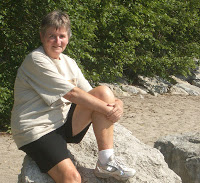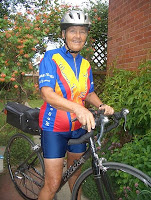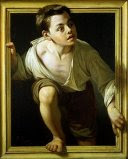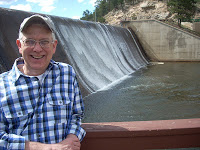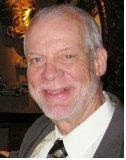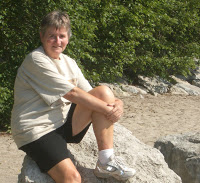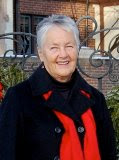An Open Letter to Universal Haters Everywhere
These are the times that try men’s souls–at the very least those souls, male or female, whose salvation depends upon making other souls miserable. It must seem to you that the very forces of human progress are aligned against you, that every cause toward which you have given the last full measure of your devotion has almost overnight become politically incorrect. You must long for the day when it was acceptable to denigrate kikes, wops, niggers, slopes and whatever minority whose presence in your consciousness caused you so much consternation in the past. Then along came Nazi Germany and Martin Luther King, Jr. and, before you could shake a faggot at it, tolerance began to creep into American society. (Strange that 300 years of Christian dogma wasn’t doing the trick.)
It must have been quite an adjustment, having to look for new subjects toward which to direct your righteous anger for all that’s unfair in this life. All the easy-to-spot suspects were becoming off limits–the odd-colored skin, the funny dress, the strange accent.
So, it must have seemed that Providence smiled on you once again when you realized that, if you looked closely enough, you could actually spot a queer by his or her manner of dress or lisp or limp wrists. Unlike your earlier victims who could barely conceal their differences, queers often were terrified of being “found out”. They thought they could mix with ordinary people and kind of blend in. That idea must have really pissed you off. I mean, if they could pass for straight, didn’t that mean that someone might mistake you for a queer? No, there was only one way that you could clearly demonstrate that you were a manly man–bash, ridicule and call out queers whenever and wherever you found them.
What a blessing it must have been for you when AIDS came along. Not only did the disease become a litmus test for being queer, it thinned their ranks so you didn’t have to bother so much. I’m sure that made you feel quite smug. I could almost hear you saying, “What goes around, comes around”.
It must have felt good to put yourself in the position of being a champion for the sacred institution of marriage against the attempts of perverts to infiltrate the institution, even as the divorce rate was skyrocketing. One of your most memorable victories was the nobly-named “Defense of Marriage Act”, which scolded those states that dared grant full legal recognition of same-sex unions.
But here it is nearly 20-years later and the U.S. Supreme Court is almost certain to rule by the end of the month that gay people are deserving of the same equal protection and due process under the Constitution as anybody else, including you. I’ll bet that really gets your goat. Who would have thought such a thing could happen so quickly?
You must have shuddered recently when Wal-Mart threatened economic reprisals against states that passed so-called Freedom of Religion laws that would sanction faith-based bigotry against gay, lesbian, bisexual, and transgendered folk. (I doubt that you can read that last sentence without gagging mentally but I thought the acronym, glbt, might be mistaken for a typo.)
“What happened to my country?” you might rightfully ask. Well, the answer is pretty simple, really. It’s the same thing that happens whenever two human beings have the inclination and the time to get to know one another before the labeling starts. It’s what happens when commonality overwhelms tribalism. It’s what happens when reality trumps preconception. The Jew, the gay, the black you know can’t always be the exception. In fact, they’re almost always never are the exception. Anne Frank may have said it best when she wrote in her remarkable diary–
“It’s a wonder I haven’t abandoned all my ideals, they seem so absurd and impractical. Yet I cling to them because I still believe, in spite of everything, that people are truly good at heart. It’s utterly impossible for me to build my life on a foundation of chaos, suffering and death.”
Freedom and dignity cannot be hoarded, like money. They are the birthright of every person. At least that’s the way it is supposed to be here in America. You cannot make yourself more free by denying anyone else their freedom. It’s not theirs to give away and it’s not yours to take. It is not yours to say whom I shall I love any more than you can deny me the same air you breathe. It’s not a sacrifice at all. In fact, you won’t even notice the difference. Once you let this sink in, however, you may notice something else is different. You may find yourself walking with a bit lighter step. And that would be good not only for your feet but for your heart as well.
© 15 June 2015
I came to the beautiful state of Colorado out of my native Kansas by way of Michigan, the state where I married and I came to the beautiful state of Colorado out of my native Kansas by way of Michigan, the state where I married and had two children while working as an engineer for the Ford Motor Company. I was married to a wonderful woman for 26 happy years and suddenly realized that life was passing me by. I figured that I should make a change, as our offspring were basically on their own and I wasn’t getting any younger. Luckily, a very attractive and personable man just happened to be crossing my path at that time, so the change-over was both fortuitous and smooth. Soon after, I retired and we moved to Denver, my husband’s home town. He passed away after 13 blissful years together in October of 2012. I am left to find a new path to fulfillment. One possibility is through writing. Thank goodness, the SAGE Creative Writing Group was there to light the way.

